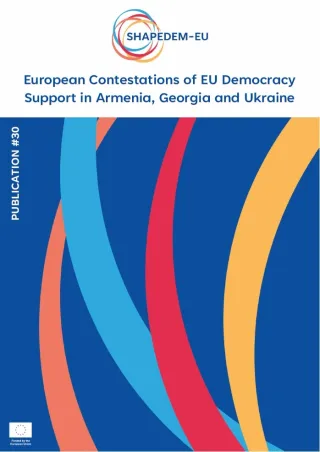Titolo completo
European Contestations of EU Democracy Support in Armenia, Georgia and Ukraine
This paper examines how European actors contest and reinterpret the European Union’s democracy support in Georgia, Armenia and Ukraine across pivotal political turning points: Georgia’s candidate status and electoral crises (2022–2024), Armenia’s trajectory from the 2013 Association Agreement reversal through the Velvet Revolution to the post-Karabakh crisis (2017–2025), and Ukraine’s Euromaidan protests and the 2022 full-scale Russian invasion. Across the cases, the EU emerges as both a cautious supporter and an uneven enforcer of democratic conditionality, while local civil societies appear as democratic drivers, ruling elites as obstacles, and Russia as the external antagonist. When conditionality is inconsistently applied, as in Georgia, the Union undermines its credibility; when external threats reveal the limits of Russian influence, as in Armenia and Ukraine, the EU shows greater capacity for adaptation and decisive action. The findings demonstrate that contestation within the EU shapes democracy support in uneven ways: discourse often signals learning and adjustment, yet practice remains constrained by geopolitical calculations and entrenched approaches. The analysis underscores the EU’s ambivalence between strategic pragmatism and normative commitments, raising the broader question of whether it can unlearn ineffective patterns and act as a genuine promoter of democracy in its eastern neighbourhood.
Introduction and Analytical Framework
1 Historical Turning Points in Georgia, Armenia and Ukraine
2 Mapping Key Actors and Analysing Discourse on Democracy Support Across Historical Turning Points
2.1 Georgia
2.2 Armenia
2.3 Ukraine
Conclusions
Bibliography


